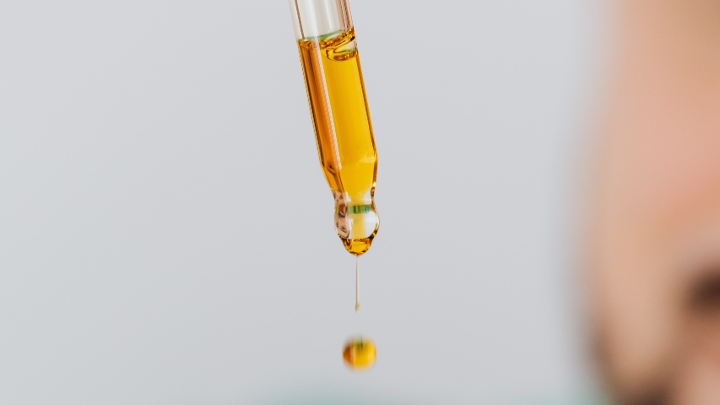Rosehip oil is an extract gotten from the fruit and seeds of rose plants. The oil has long been used for skin care and therapeutic purposes as it contains several skin-nourishing nutrients and essential fatty acids. It is only right to wonder, is rosehip oil good for the face?
Rosehip oil is a good addition to your facial routine as it contains antiviral, antibacterial, and antifungal properties. In addition to that, it also has anti-inflammatory properties that soothe the skin.
These are properties that will help to nourish and treat your skin concerns. Read ahead to find out how rosehip oil benefits your facial skin as well as how to use it correctly.
What does rosehip oil do for the face?
Due to the several beneficial properties and nutrients rosehip oil contains, it has quite several benefits for the skin. Below are some of the things the oil can do for your face:
1. It helps to prevent the appearance of aging signs
Rosehip oil contains antioxidants such as vitamins A, E, and C. These are vitamins that help fight against free radicals and environmental aggressors. They protect the skin from getting damaged by the sun, chemicals, and pollution. These properties also help to retain moisture on the skin.
Because of this, there is a reduction in the rate at which aging signs appear on the skin. Rosehip oil will also reduce the appearance of existing wrinkles on the skin by hydrating the skin and providing it with sufficient nutrition.
It will also boost the elasticity of the skin and help the skin regain its firmness. This will help maintain a youthful glow and look on the skin.
2. Fights and prevent acne
Rosehip oil contains high levels of linoleic acids, which is beneficial for acne-prone skin. The fatty acid helps in reducing the formation of acne in the skin. It also contains antibacterial properties that will help to prevent acne inflammations.
3. Reduces redness and calms inflammation
Aside from the vitamins and linoleic acid that rosehip oil contains, it also has carotenoids which is a powerful property to help soothe inflammation and heal damaged skin. Using the oil on your skin will help to reduce and soothe acne inflammation, infections, rashes, bug bites, and so on.
4. Bring moisture closer to the skin
Rosehip oil forms a protective layer on the surface of the skin. This helps in preventing the loss of water from the skin. Unlike natural skin oils, rosehip oil contains linoleic acid, which makes it more moisturizing than sebum.
Rosehip oil balances hydration for all skin types, which prevents hydration from escaping. It is useful for reducing oil in oily skin and hydrating dry skin.
5. Softens and brightens the skin
Rosehip oil is an emollient that softens and smoothens the skin by recombining skin cells. This oil is ideal for you if you have rough or scaly skin. The antioxidants contained in rosehip oil will also help to brighten the skin. When applied to the entire face (including under the eyes), it gives off a natural glow.
Is rosehip oil good for skin pigmentation?
Several factors, such as environmental aggressors, sun exposure, and hormonal changes, cause dark patches to appear on the skin.
Using rosehip oil is a good way to reduce pigmentation on your skin, as the oil contains vitamins that can help to reduce dark spots and patches.
Rosehip oil also contains skin-lightening compounds such as lycopene and beta-carotene. This will help to lighten the dark spots and patches on the skin, which improves visibility.
Is rosehip oil good for oily face?
Rosehip oil is a good choice for you if you have oily or acne-prone skin as it contains properties that can help to regulate oil production in your skin.
In addition to that, rosehip oil is less likely to clog your pores like other oils.
The reduction in the production of oil will help to prevent further clogging of pores. When there is no excess oil to mix with dead skin cells to clog the pores, there is a reduced risk of breakout on acne-prone skin.
Acne inflammation can happen when bacteria mix with dead skin cells and oil on your skin. However, this can be sorted with the antibacterial, antifungal, and antiviral properties of rosehip oil. These properties will fight off bacteria and prevent their entry into the skin.
Is rosehip oil good for aging skin?
Yes, it is.
Rosehip oil contains essential acids and vitamins that promote cell and tissue regeneration in the skin.
This allows the replacement of damaged skin cells and tissues. This makes rosehip oil a good choice to treat aging skin.
The oil contains a significant amount of vitamins and antioxidants that can help to reduce the visibility of aging signs on the skin. Aging skin happens as a result of weak skin cells and tissues.
Using the oil on your skin will help to promote the production of collagen and elastin in the skin cells to revitalize the tissues. Elastin is an essential protein fiber in the skin that helps to retain the elasticity and firmness of the skin.
Also, it contains vitamins A and C, which are responsible for triggering collagen synthesis in the skin. Vitamin A is known to stop the enzymes responsible for breaking down collagen production in the skin.
Is rosehip oil good for dry skin?
Dry skin needs the most moisture to stay smooth and healthy. Since rosehip oil helps in locking in moisture on your skin, it is a good choice for dry skin.
A study reveals rosehip to offer great anti-aging benefits to the skin along with the ability to moisturize the skin. Researchers discovered that the oil can help to moisturize the skin significantly to improve the appearance of dry skin.
Is rosehip oil good for dehydrated skin?
Skin dehydration occurs due to a lack of hydration in the skin. Lack of hydration can happen due to factors like harsh climates, like the winter.
Since hydration is needed to keep the skin soft and plump, rosehip oil is a good one for dehydrated skin.
The oil contains an adequate amount of linoleic and linolenic acid—which are essential fatty acids that help to strengthen the skin barrier to prevent water loss from the skin. Its antioxidant properties also travel into the skin layer to hydrate the skin.
This makes the oil an excellent choice for hydrating dehydrated and itchy skin.
Is rosehip oil good for sensitive skin?
Rosehip oil is a gentle and soothing oil that works well for every skin type, including sensitive skin.
Using the oil regularly on your face can help to soothe irritation, dryness, and discomfort. It will also give your face a beautiful, natural glow. Furthermore, it makes your skin feel soft and supple by hydrating it.
However, if you have sensitive skin prone to irritation and allergy reactions, you should do a patch test before using it.
Test the oil on a small patch on your inner arm or wrist by applying a pea-sized amount of the oil to it. Check for allergic reactions after 24 hours, and if there is none, you are good to go.
Is rosehip oil good for face rosacea?
Although rosehip oil has not been proven to treat rosacea, it may be a good choice for treating rosacea on your face.
This is because it contains anti-inflammatory properties that can help to calm redness and soothe inflammation. Therefore, using the oil may benefit and improve rosacea.
How to use rosehip oil on the face
Rosehip oil is a tiny molecular dry oil that absorbs quickly into the skin once you apply it. Even though the oil is generally safe for all, you need to be sure you are not allergic to it. Therefore, doing a patch test is important as this will save your skin from unnecessary irritation.
To carry out the patch test, apply a little amount of the oil on your wrist and cover it up with a band-aid or gauze. Check for signs of irritation or allergy reaction after 24 hours of doing this. If you notice your skin is inflamed or itchy, do not go on to use the oil.
However, if your skin does not show any sign of reaction or irritation, you can proceed to use it on your face. You can apply the oil on your face as often as twice daily after this. You can use it alone or mix a few drops in your favorite moisturizer.
Because the oil doesn’t have a long shelf life, it will be better to store it in a dark place. Storing it in a refrigerator may help to extend the shelf life of the oil.
Frequently Asked Questions

Can you use rosehip oil as a face moisturizer?
Yes, you can.
You can apply rosehip oil on your face as a moisturizer because it contains moisturizing properties. That makes it ideal for moisturizing and hydrating dry skin and all other skin types.
Even on oily skin, using rosehip oil is a good way to moisturize and seal in moisture on your skin. This is because it will offer all its benefits to your skin without clogging your pores.
Can you use rosehip oil on your face every day?
Yes, you can.
You can apply rosehip oil to your face every day, both in the morning and evening to nourish your facial skin.
Regular and consistent use of rosehip oil will help hydrate and moisturize your skin, boost collagen production to reduce aging signs, soothe inflammation, and reduce redness.
Can you sleep with rosehip oil on your face?
Yes, you can.
You can apply rosehip oil on your face before going to bed and leave it overnight.
Doing this will give the oil a wider window to nourish and work on your face without interruptions. This will help to give your skin a youthful glow when you wake up in the morning.
Conclusion
Rosehip oil is one of the best oils for the face to achieve a youthful, healthy glow. The oil contains several beneficial properties that can help to nourish and revitalize skin cells and tissues. This will help to improve the overall appearance of the facial skin.
Rosehip oil can be used on all skin types, as it is a gentle oil and doesn’t clog the pores. Therefore dry, sensitive, oily, and acne-prone skin can benefit from it.
Introduce rosehip oil to your skincare routine today, and your skin will thank you for it.
Thanks for reading.
You can get more helpful beauty tips here on MBGON.
